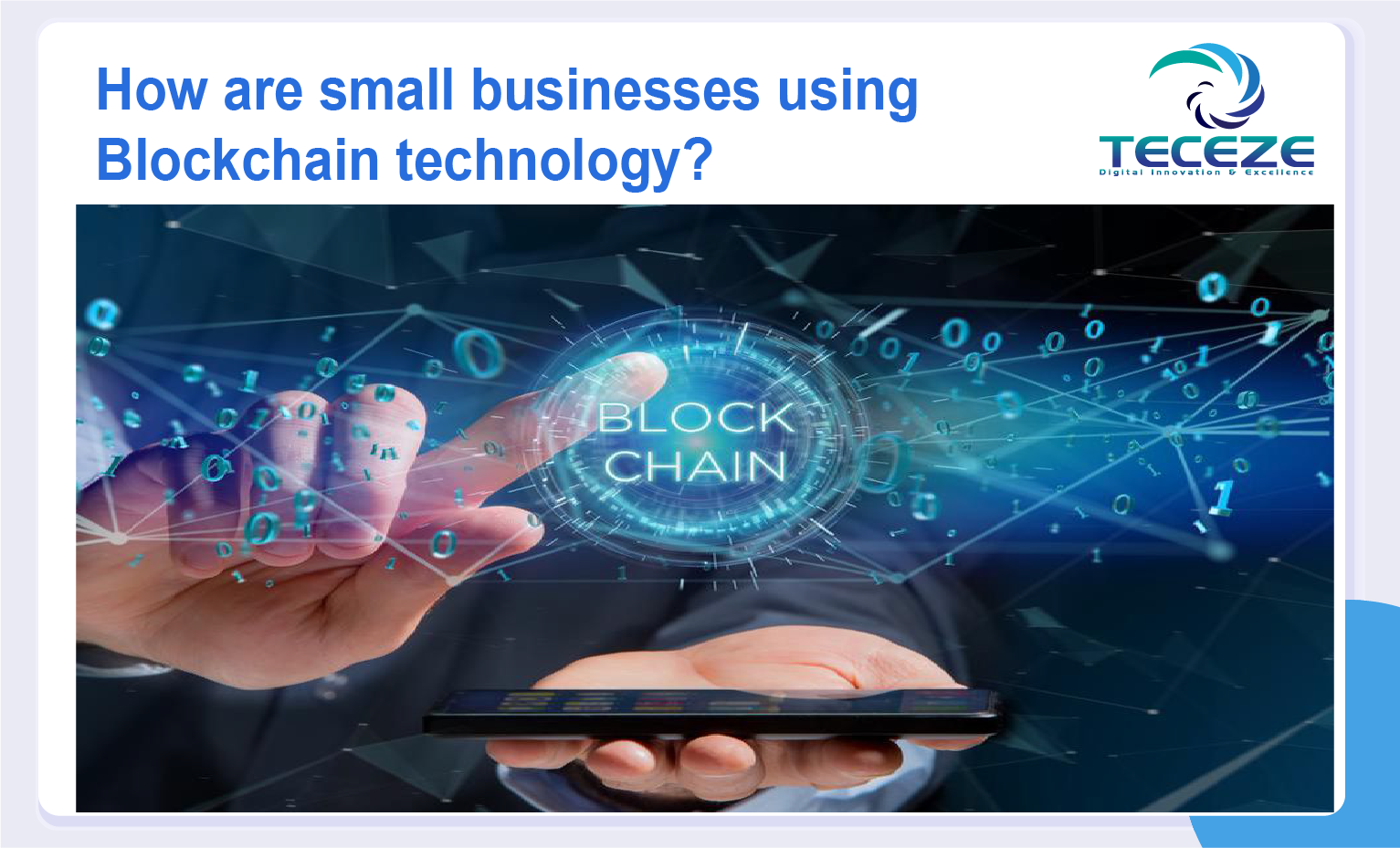How are small businesses using Blockchain technology?
Table of Contents
How can use Small Companies Blockchain Technology?
When you think about blockchain technology, chances are it’s about cryptocurrencies. But that’s just exploring the possibilities of what it can do.
Here’s a quick look at how blockchain technology works and how you can use this to give your small business an advantage.
What is Blockchain Technology?
Blockchain technology was first used to circumvent traditional financial institutions and pacify the extinction banks feared over unregulated currency going mainstream. Blockchain technology is a distributed record book that accounts for, validates, and imposes the transactions conducted. The method may seem comprehensive, but transaction formation, record, verification, and implementation take place in real time.
In the case of small businesses, it can be used for receiving payrolls, contractual arrangements, consumer payments, cloud services, and more.
How does Blockchain play a part in a small business?
In businesses, there are plenty of cases where a sequence of transactions must be properly documented and where several parties have an interest.
What about an accounts audit trail, steps to the execution of a deal, or ties in a supply chain? New business applications for Distributed Ledger Technology (DLT) have been investigated.
Ethereum was created in 2015 and is an easy way to create special systems called “distributed apps” or “Dapps”. Another variation – permission ledgers – blends all the advantages of a blockchain with vital business secrecy.
You may not be aware whenever an underlying device begins using DLT, but you can see certain changes.
1. Reduced instability in supply chains
Many small companies will find themselves on any rung inside a dynamic supply chain. Shipping and logistics activities can be an admin-heavy, resource-swallowing mechanism to plan and keep track of.
With each supply chain partner, depending on one another’s organization, punctuality, and consistency, if one aspect of the chain breaks as a result of mistakes or delays, then companies may be disrupted, and partner relationships destroyed.
2. Creating unbreakable agreements with Blockchain
Businesses deal with contracts regularly. Be it merger contracts, vendor contracts, or even payment terms, signing contracts means placing confidence in a piece of paper.
Blockchain will fill up this part of business dealings by developing smart contracts. As the name suggests, smart contracts are self-executed, coded agreements that produce assured results if the predetermined conditions are met. Generally, it’s like a paper contract where terms are laid out; the difference now is that it is digitized and cannot be tampered with it in any form because it’s in a blockchain.
Say, for example, a company wanted to employ the services of a freelance designer to create their ad creatives. The business will negotiate and settle on the number of objectives, the designer should manufacture per month for a fixed price. When all parties agree, a smart contract can be placed to facilitate the agreement. It’s a risk-free way for companies to control and regulate relationships with their suppliers and subcontractors.
Smart contracts, when extended on a bigger scale (like a merger or acquisition) do not require a lawyer to negotiate the agreement. As long as the conditions are met, value transfers will happen without fail.
3. Safer data storage at a reasonable price
Although today’s preferred data storage option is in cloud computing, a lot of storage capacity on cloud infrastructure domains remains unused (especially prepaid ones). The fact that cloud servers are clustered at the service provider’s end makes people even more concerned about the risk of breaches and cyber-attacks.
Blockchain allows users to store data in a safer digital world, for a fair price. Organizations can begin storing the data mutually on each other’s machines by leasing additional storage space — this relationship is handled on a blockchain by specialist providers.
The stored data is then encrypted and will only be available to those who have the crypto key. Businesses using a blockchain-based, decentralized data storage system will be ensured that data is safe and protected, while those ‘renting’ storage space would enjoy an additional income for otherwise surplus capital.
Tips on making progress with Blockchain technology
- First things first, read up as much as possible. While the blockchain has a lot of promise, there are also drawbacks you have to be aware of. Thus, it’s better to get up to full speed before you jump in. Blockchain for Dummies–which you can download as a PDF for free–and The Business Blockchain book are good places to start.
- Recognize, the why. As with any new software, integrating blockchain technology into your company would entail a learning curve. Before you spend the time, try to ensure that you’re doing this for the right reasons. Generally, this means a blockchain-based app is going to save you time, and money, or otherwise make your life easier and faster.
- Begin small. Pick one app and get used to it instead of going all in. Working with one app would provide you the time to adapt instead of trying to deal with several adjustments at once.
When you think about blockchain technology, chances are it’s in relation to cryptocurrencies. But that’s just exploring the possibilities of what it can do. Here’s a quick look.
 Back to Insights
Back to Insights
 Previous
Previous 